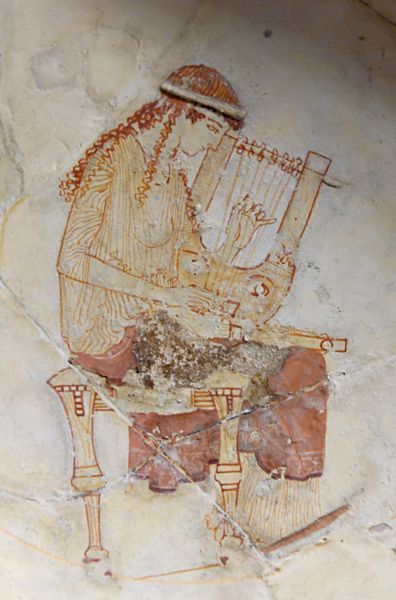As I began flipping through, I came across a little section at the beginning which illustrates how the lute was valued in education in antiquity. Smith quotes Plato:

"...Isn't training in mousike of overriding importance, because rhythm and Harmonia penetrate most deeply into the recesses of the soul and take a powerful hold on it, bringing gracefulness and making a man graceful if he is correctly trained, but the opposite if he is not?" [Plato's Republic, Book III]
As Smith explains, in the Hellenic philosophy of moral education, "mousike" was a coinage from muse-ic, which meant "pertaining to the muses." Music meant not just music, but also poetry, song, dance -- all the attributes of the muses.
This definition -- or now re-definition -- of "music" lays a threshold for a study of the lute that branches in countless cultural directions. The expanded definition connects the lute to disparate aspects of society, and I don't think it is wrong in doing so. The lute's cultural inter-connectivity is what makes it so interesting and remarkable.
It is worth reading Plato's entire argument about music in The Republic. You have certainly highlighted the best part of his ideas, but the connection between art and virtue is worth reading in full. You can access the whole text through MIT: http://classics.mit.edu/Plato/laws.2.ii.html
ReplyDeleteHi Lily, I am the Signature manager who will follow your blog throughout the year. This is indeed a very unique project! I love your whit and the images add a lot to your posts. It would help me to learn more about your goals for this project. Try to connect each post back to the work you're doing and remember to post about every two weeks.
ReplyDelete